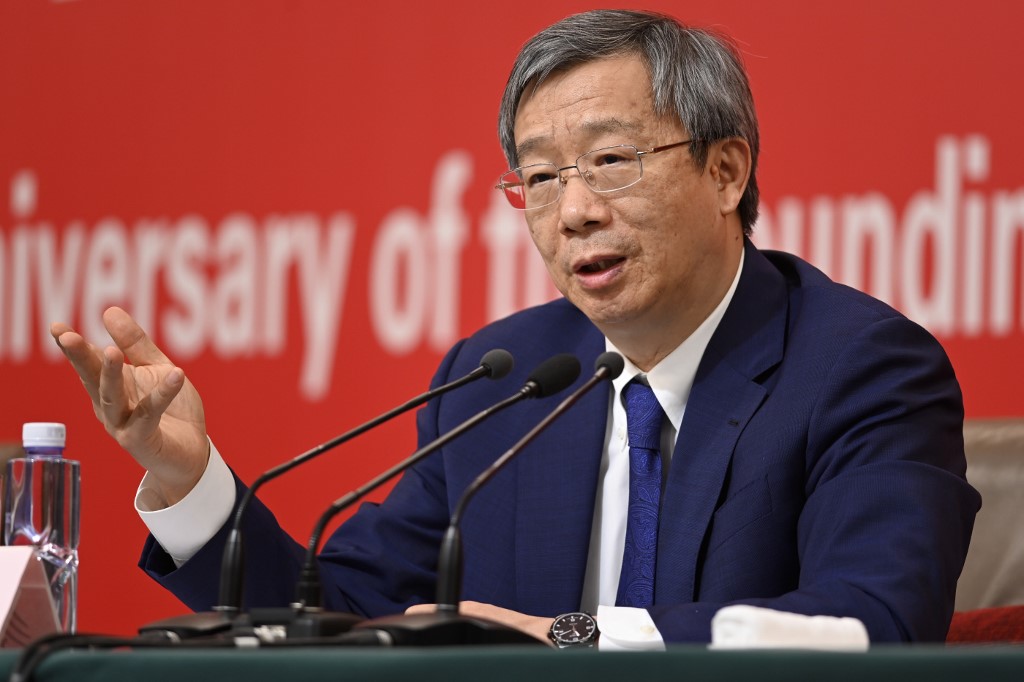(ATF) China’s central bank chief has warned that more government stimulus may deepen debt risk in an already fragile economy.
Yi Gang, governor of the People’s Bank of China (PBoC), called on policy makers to maintain standard monetary policies for as long as possible, even as trillions of yuan are being pumped into an economy shattered by the coronavirus fallout.
The call, contained in an article written the academic publication Economic Research, reiterated an appeal he made to policy makers last month.
Ideally, policy makers should strike a balance between economic stability and risk prevention to leave room for long-term, sustainable growth, Yi wrote in the article published Sunday.
China’s central and local governments, as well as companies and other official bodies have sold record amounts of bonds and loans – all with the obligation to be repaid – to stimulate growth in hard-hit regions and industries. They’ve also offered low-rate loans and shopping coupons to stimulate consumption among ordinary Chinese, lifting household debt towards dangerous levels.
READ MORE: PBoC adds more liquidity for Chinese lenders
The nation’s macro leverage level, or the total debt-to-GDP ratio, is likely to rise continually, and the task of macroeconomic policies is to keep the ratio stable, Yi wrote.
China will take countercyclical measures, keeping liquidity at a “reasonably ample level and sustaining proper growth of money and credit supply” to combat the downturn caused by a two-month shutdown of industry in the world’s second-largest economy, Yi wrote. Targeted measures will support companies affected by the virus by offering sufficient capital, he said.
Fast expansion of money supply and bank lending has been reflected by the financial data in March, as the new yuan loans and aggregate financing soared to new levels.
However, even before the outbreak, the central bank had started keeping an eye on rising leverage, especially in the household sector, adding to concerns about the impact on economic growth, which in the first quarter contracted by 6.8% to its weakest in decades.
READ MORE: PBOC warns banks their interest rates are too high
A survey by the central bank’ statistics and research department found last Friday that the average debt-to-asset ratio of urban families was 9.1% as of October. About 75.9% of the debt was held in home loans. The debt ratio to financial assets is higher, which may lead to liquidity risks, it warned, although the overall household debt risk is under control.
It is believed that despite the rapid growth in consumer lending, financial stimulus amid the virus outbreak will also add to the debt burden of companies and local governments, as bank lending is the main driver of infrastructure construction and corporate investment to save jobs.
“Too much aggressive stimulus may lead to inflation and a surge in the macro leverage ratio,” the PBoC governor warned. “Thus, (China) needs to keep using the conventional monetary policy tools as long as possible, to support the long-term development strategy.”
READ MORE: G7 should tackle Covid-19 with massive fiscal stimulus
Yi stressed that, in the current stage, “a proper policy choice is to retain a stable macro leverage ratio”, requiring a broad stabilisation of economic growth, house prices and market expectations, considering the rising debt and the need to prevent risks.
China’s macro leverage level increased has surged in past decadeto 248.7% in 2018 from 145.4% in 2008. The leverage ratio for corporates surged to 159.8% at the end of 2016, which was a relatively higher level compared with other countries, said Yi.
Reform measures, including the registration system for initial public offerings and the special financial courts, should be promoted, allowing investors to gain income at the same time of taking risks, he said.
Domestic financial services, such as asset management, pension and health insurance, still have huge potential to develop, judging by the experience of foreign financial institutions, said Yi.
He said it is important to monitor the debt levels of the household sector, compared with the individual income levels and the property loans. The country should also optimise land supplies and improve the local government debt mechanism and reduce the reliance on fiscal income from land sales.
























